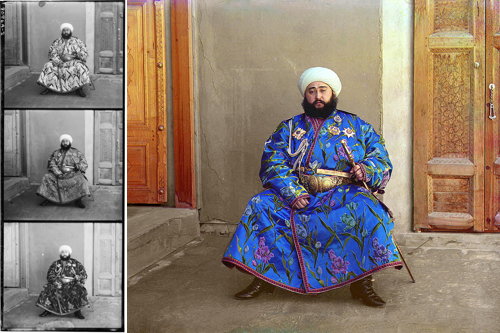Colour photos of Imperial Russia
In 1948, the Library of Congress purchased a collection of colour images taken by Russian photographer Sergei Mikhailovich Prokudin-Gorskii (1863-1944). Taken during a series of surveys of the Russian Empire on behalf of the Tsar prior to World War I, these photos were produced by taking a series of black-and-white photos through red, green and blue colour filters; Prokudin-Gorskii created colour images by combining the images with a special projector using the same filters. (This method is still used by astrophotographers, who use specialized monochrome CCDs to take a series of images through special filters.) The result, when processed with modern-day tools (hello, Photoshop), is a series of stunningly vibrant colour photos from a period otherwise remembered in sepia, and from a part of the world not often seen in the West, even at the time. A total of 2,607 images are available in the LOC’s Prokudin-Gorskii Collection; an online exhibition from the LOC and The Big Picture offer some of the more stunning examples. Above: a portrait of the Emir of Bukhara.
